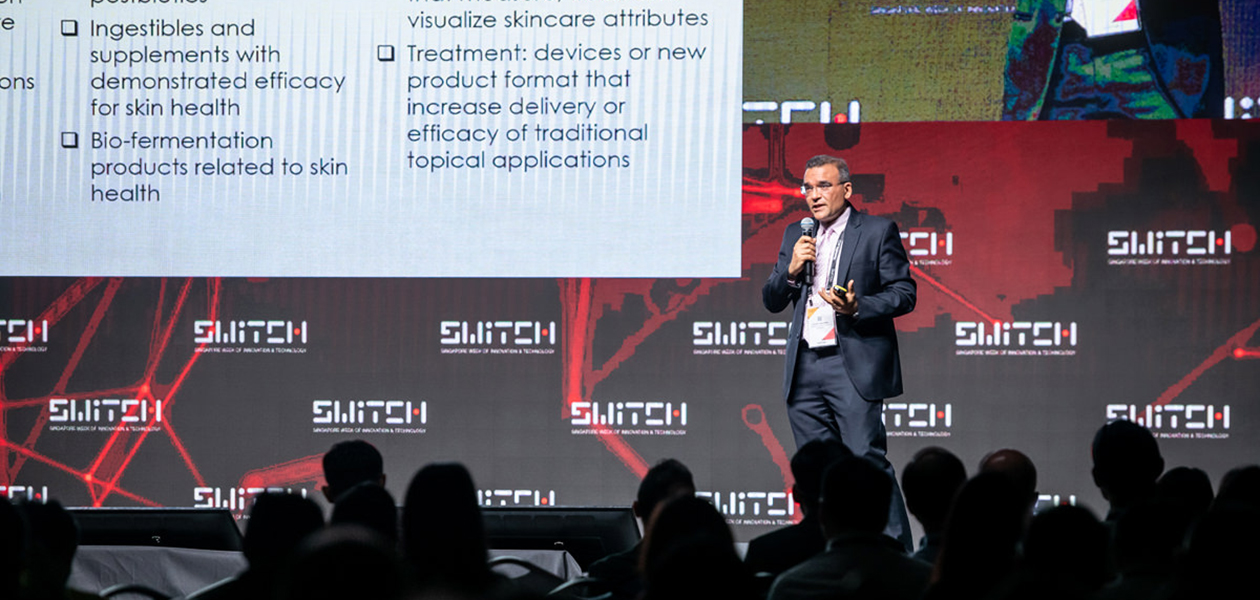At TechInnovation 2019, large corporations shared their problem statements with an international audience with the aim of crowdsourcing for solutions. Find out how your company can participate in this ongoing Innovation Challenge.
Companies big and small are changing the way they innovate. Instead of building up new capabilities from scratch each time, many of them are looking to collaborate with external parties, moving from centralised to decentralised R&D. By engaging in open innovation, new solutions can be co-created to meet market demands, boost business and help companies stay ahead of the competition.
Embodying the spirit of open innovation was a crowdsourcing segment at IPI’s TechInnovation on 11 November 2019. The platform invited large multinational companies to share some of their problem statements with small- and medium-sized enterprises, start-ups and researchers in an open call for innovative solutions.
In case you missed the action, here are some of the innovation bottlenecks and pain points highlighted during the session.
Baby steps to better health
Two of the companies pitching their problem statements to the audience were keen to drive innovation in the domain of infant health. Johnson and Johnson Innovation, for one, sought artificial intelligence (AI)-enabled digital tools that can be used to detect conditions like atopic dermatitis, celiac disease, peanut allergy, and asthma in new-borns and toddlers.
“[We are looking for] AI-enabled tools which could help predict the probability of disease early in childhood and thereby allow healthcare professionals or parents to find ways to intercept disease before it progresses,” said Nilesh Wadhwa, Director of Transactions, Johnson & Johnson Innovation Asia Pacific.
Meanwhile, French multinational food company Danone was focused on infant nutrition and its impact on long term health. Dr Enzo Acerbi, a Senior Data Scientist at Danone, shared problem statements related to infant’s immune system development and infant’s nutritional requirements.
Innovation to disrupt disruptions
Monitoring systems across the service delivery chain can help reduce disruptions of service, improve convenience for customers and raise their overall satisfaction levels. This is especially important for Changi Airport Group (CAG), which sees millions of travellers pass through its doors each year.
Bernard Siew, Vice President of Innovation at Changi Airport Group, shared that passengers/visitors sometimes left their bags/items behind on the Skytrain, the automated people mover system that transports passengers between terminals.
"We view security very seriously in Changi Airport. Whenever we have a bag, or item left behind in a Skytrain, we have to stop the Skytrain service for security personnel to perform a sweep and investigation before resuming the Skytrain service,” Siew explained. “This disruption of the Skytrain operations inevitably causes delays to passengers and impacts their experience in the airport”.
Hence, CAG worked with Enterprise Singapore (ESG) and IPI to look for potential partners who could detect left items in the Skytrain through real-time video analytics. A briefing was conducted on 25 November where CAG shared the scope and evaluation criteria for the challenge with interested companies and start-ups on.
Participants were also given video footage as “training data” to support their preparation for the Evaluation Day in January 2020. Their video analytics capabilities will be assessed with a new video footage. Registration for the challenge has ended and the top performing companies would be announced in Q1 2020.
Get in on the action
While CAG was very clear about the technology they were looking for, open innovation platforms such as the one at TechInnovation 2019 may also feature problem statements where the solutions are less obvious. Therein lies the strength in crowdsourcing, since the process of ideation is spread across a wider base of innovators. Unexpected but effective approaches and methodologies may emerge that never occurred to the solution seeker.
The call for innovations did not end at TechInnovation 2019—the TechInnovation Challenge is open until 31 March 2020 for other challenge statements. Solution providers can explore the problem statements issued by companies at this link and select the one that they are interested in responding to.
Applicants who submit proposals with complete information will stand a higher chance of being shortlisted to meet with the solution seekers. For enquiries on the Innovation Challenge or proposal submission, please email [email protected].

